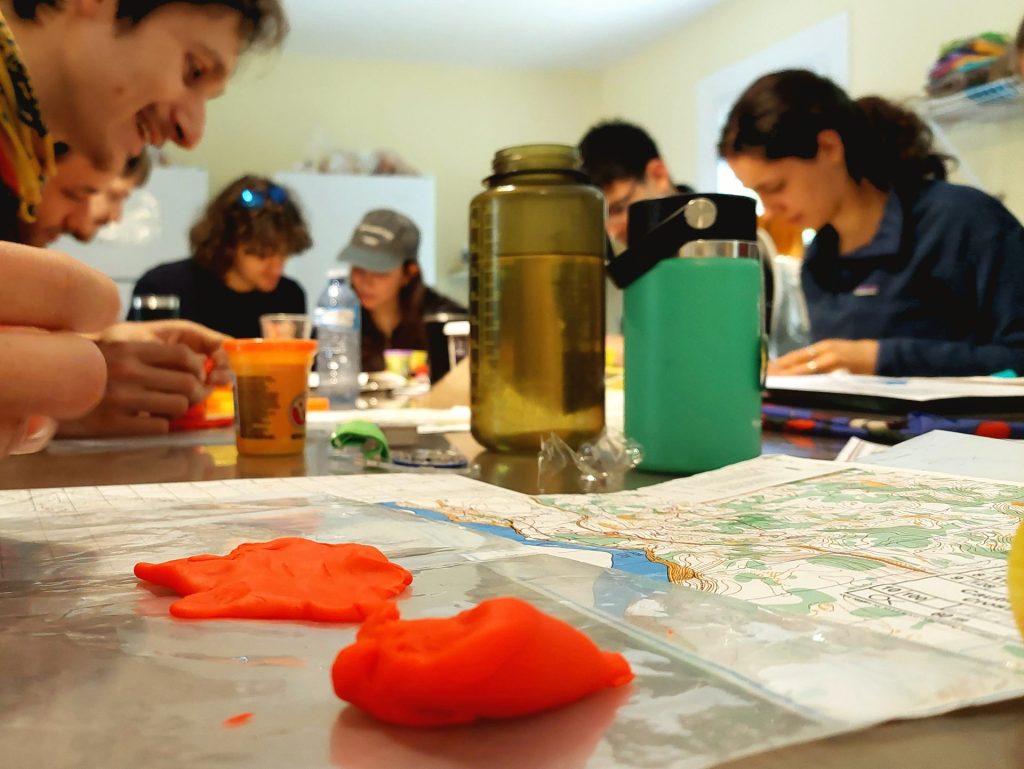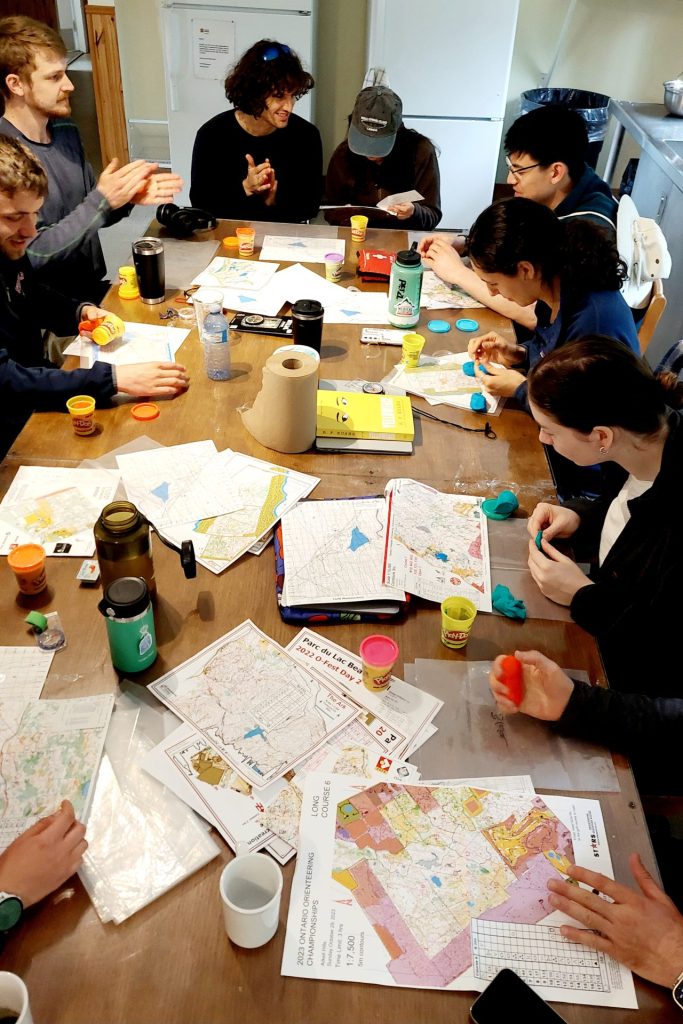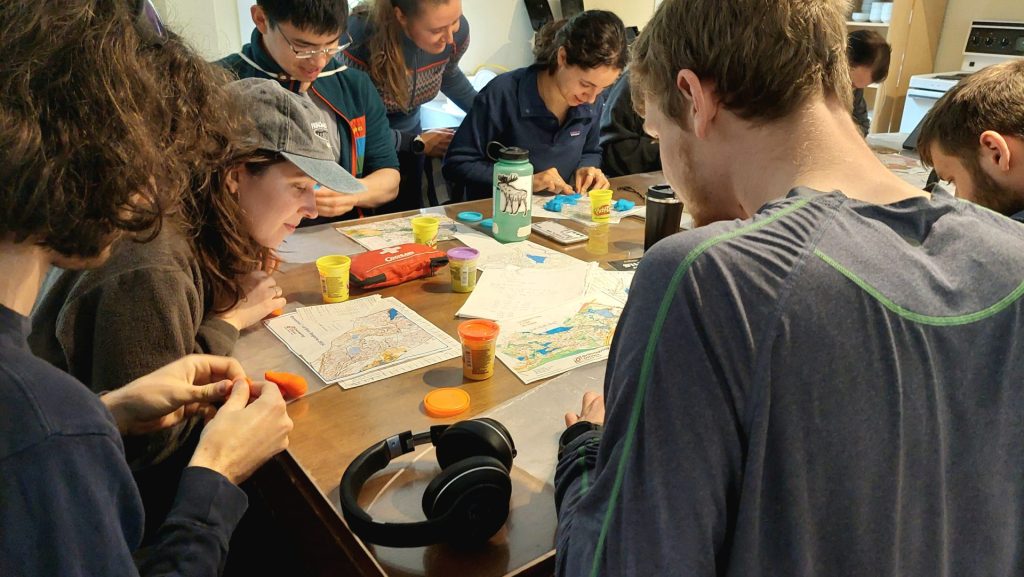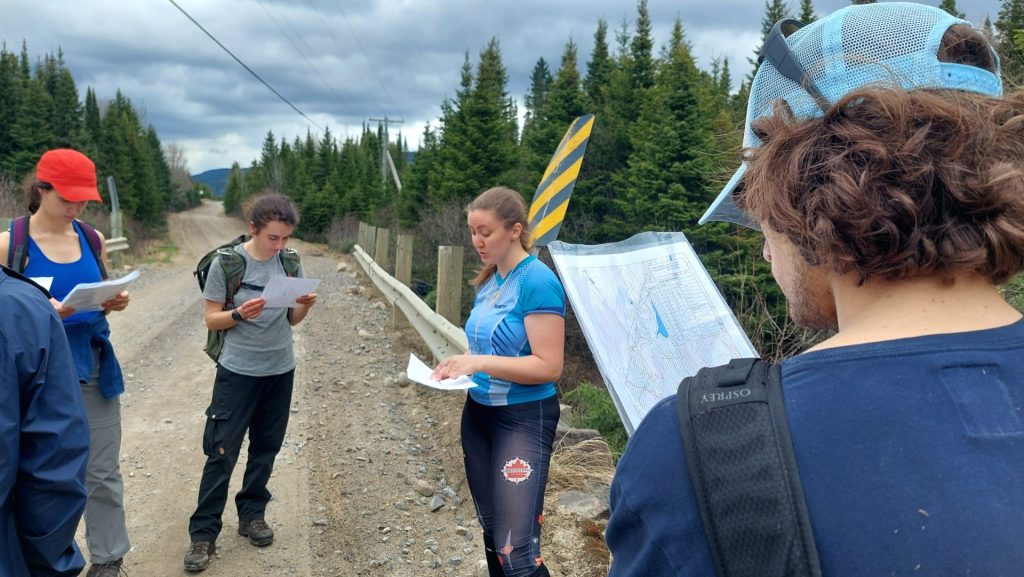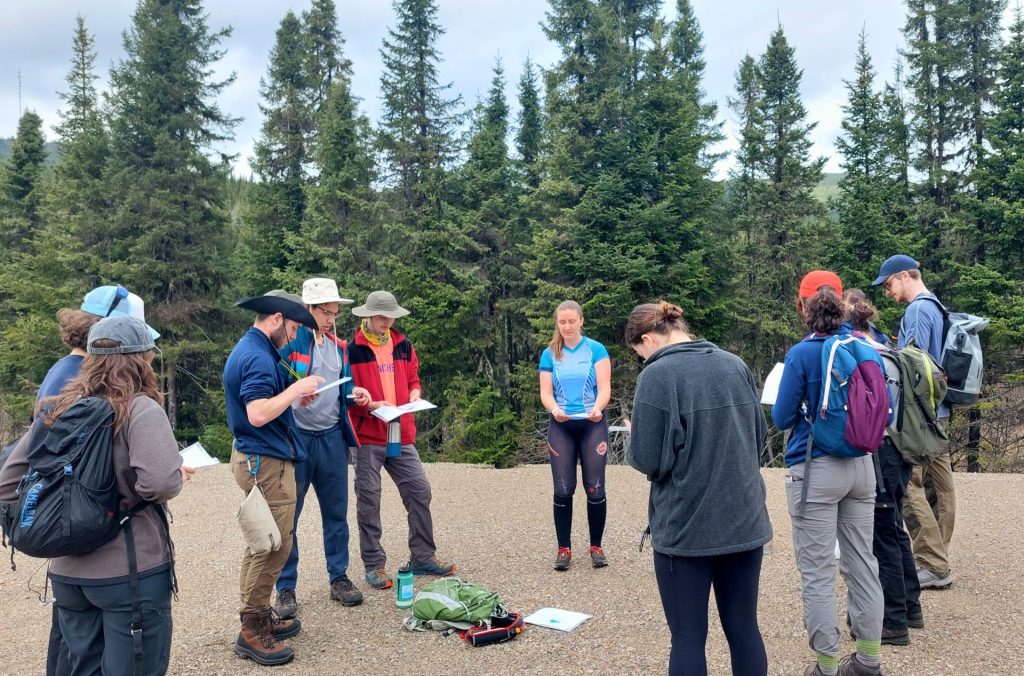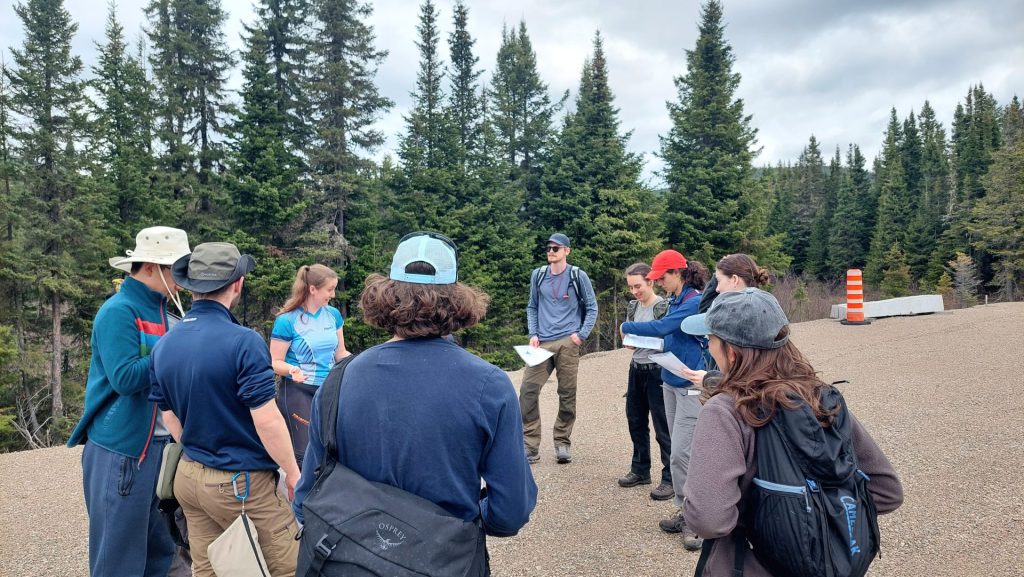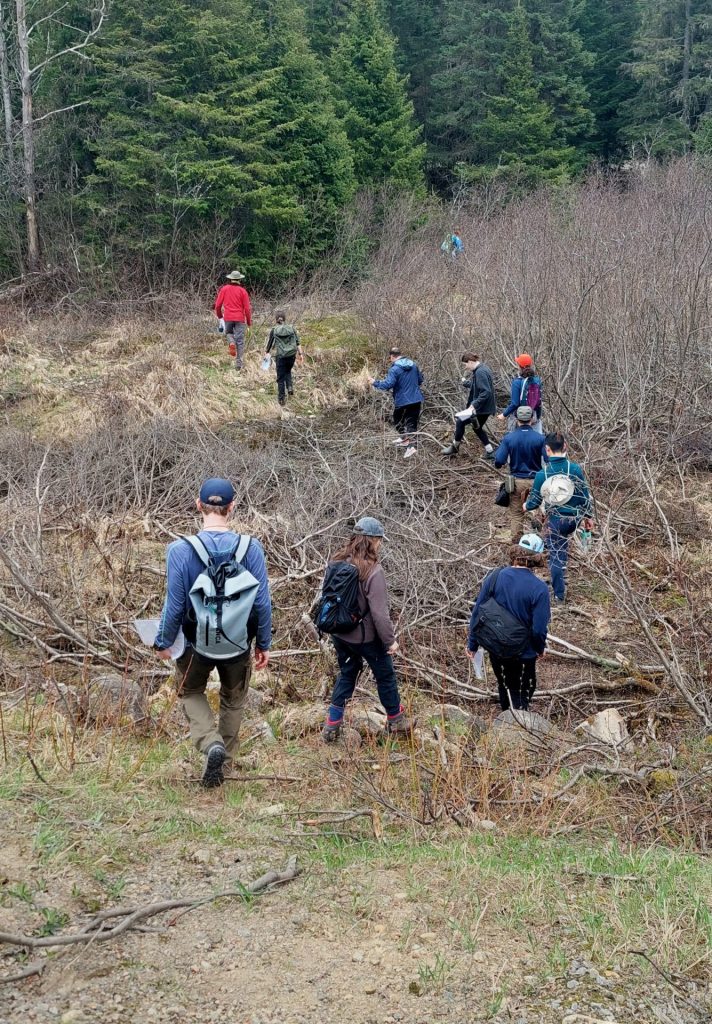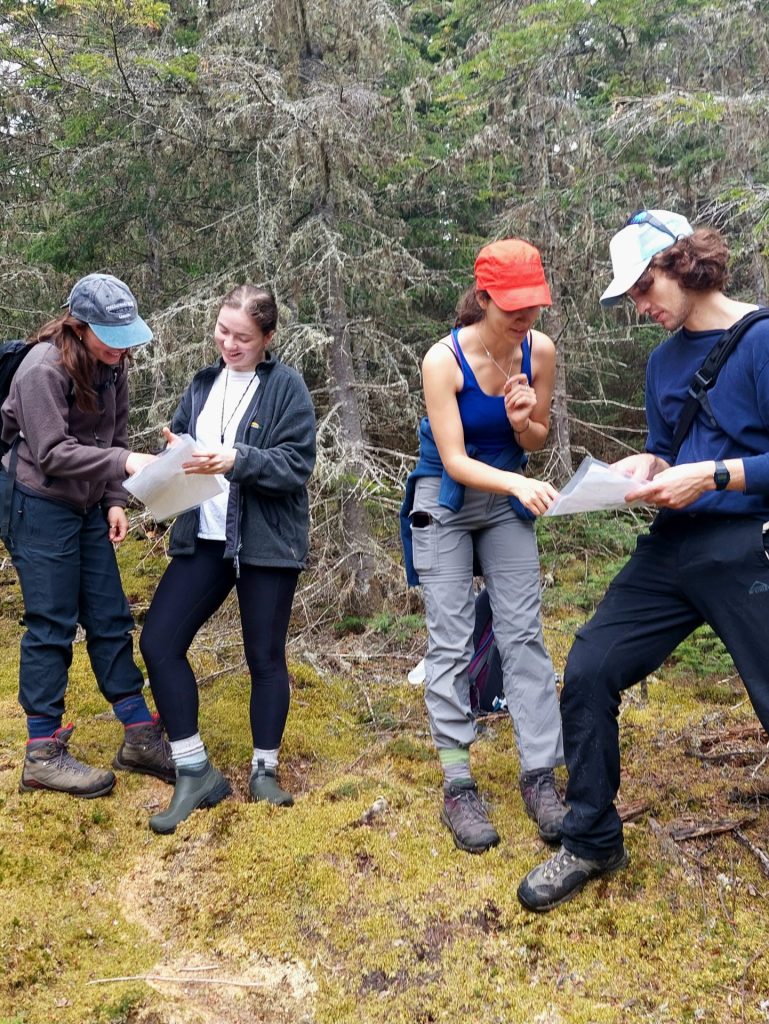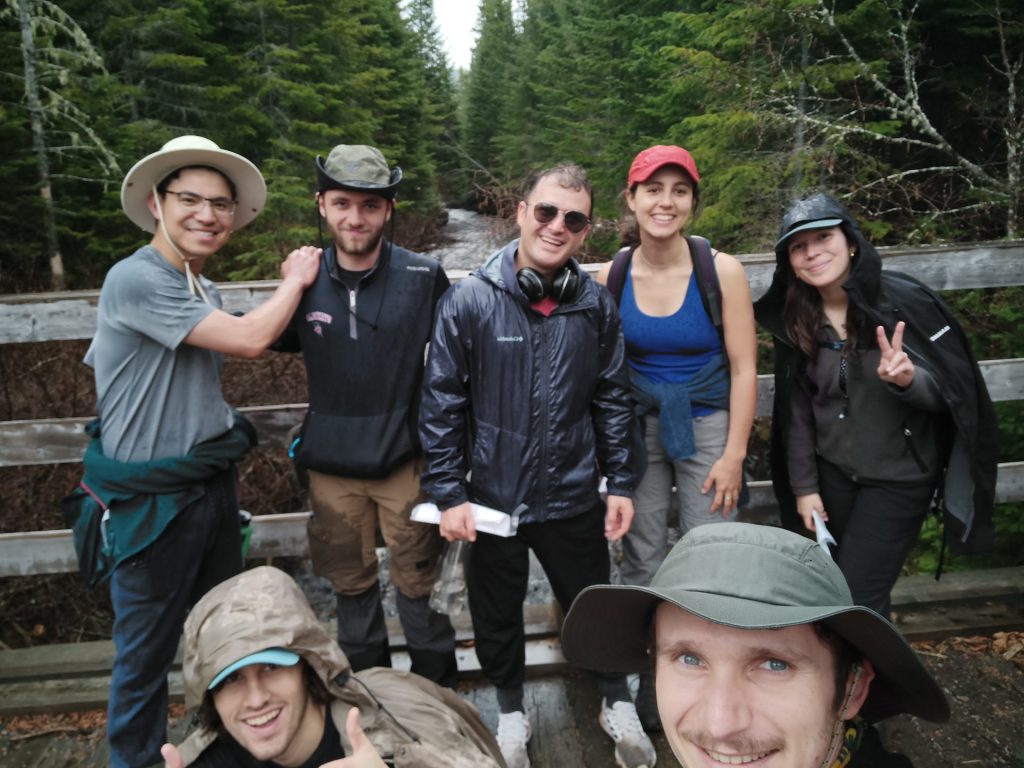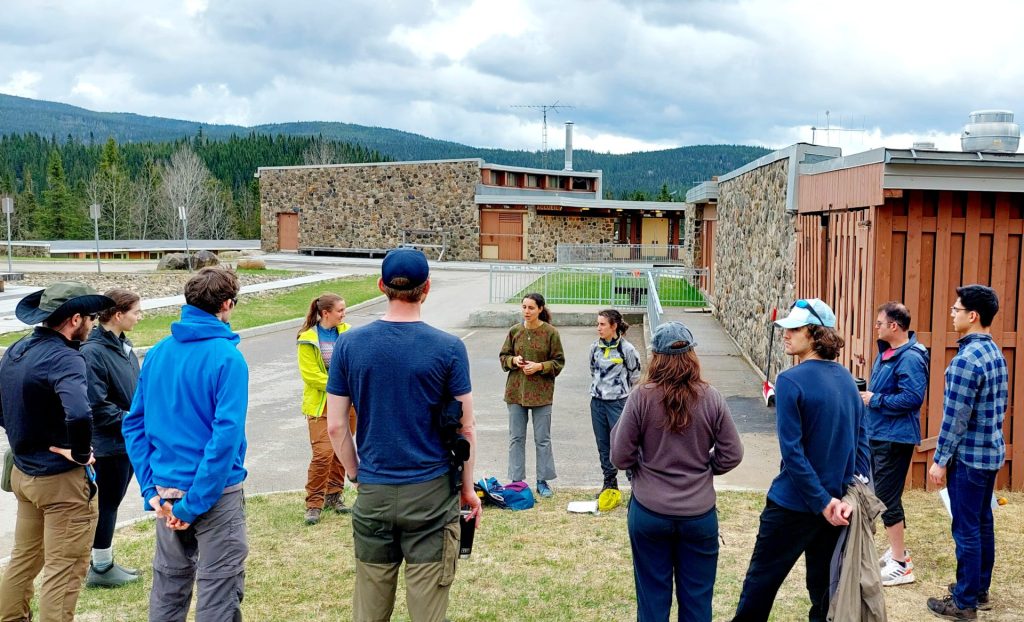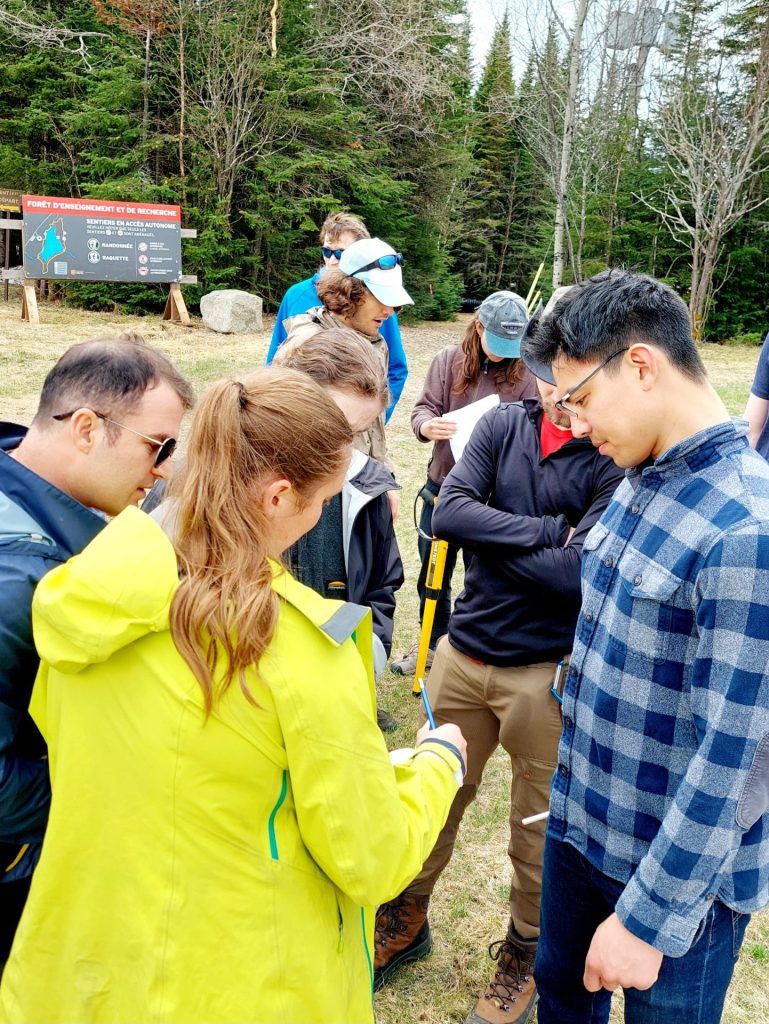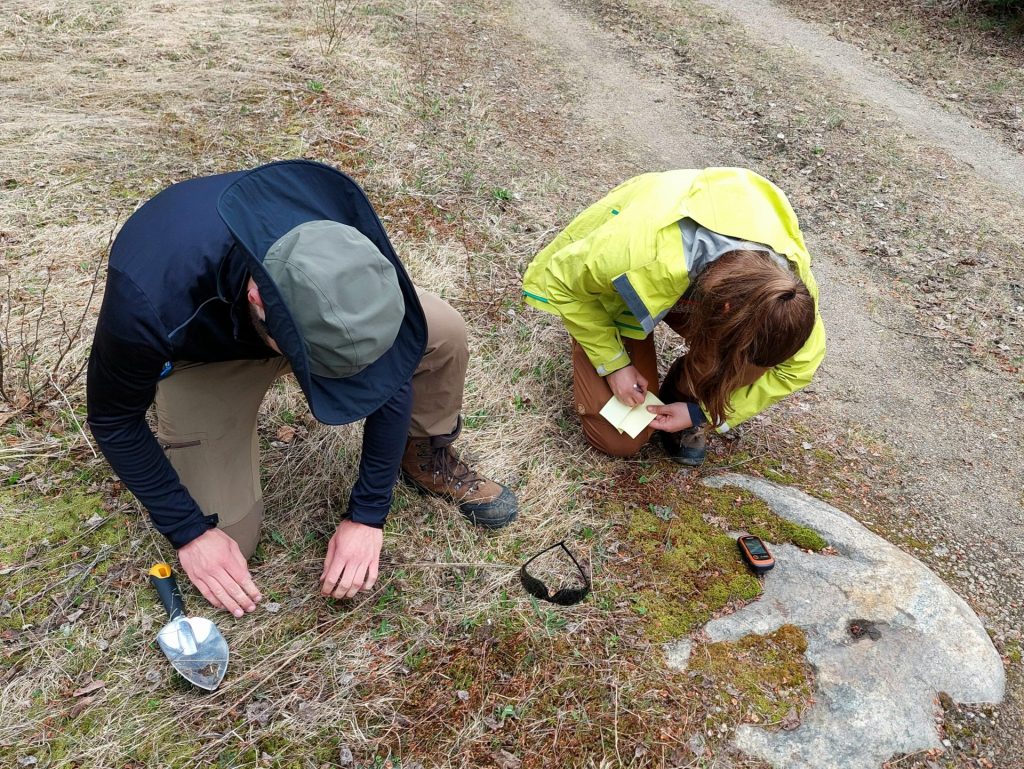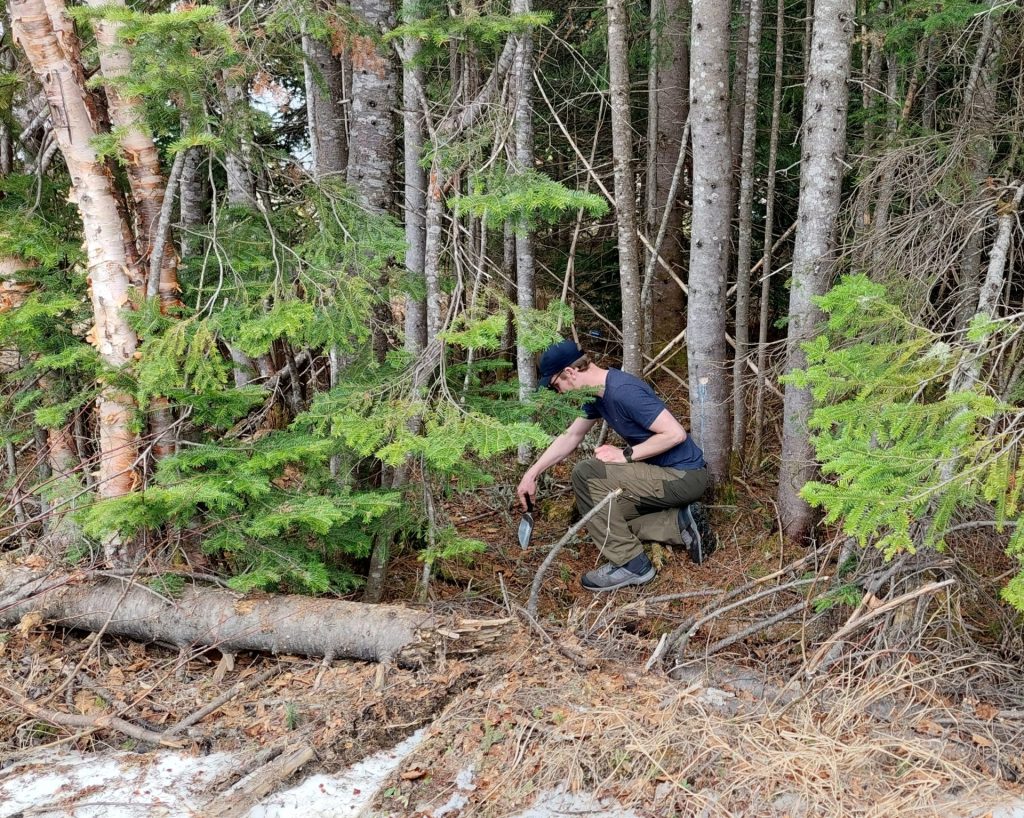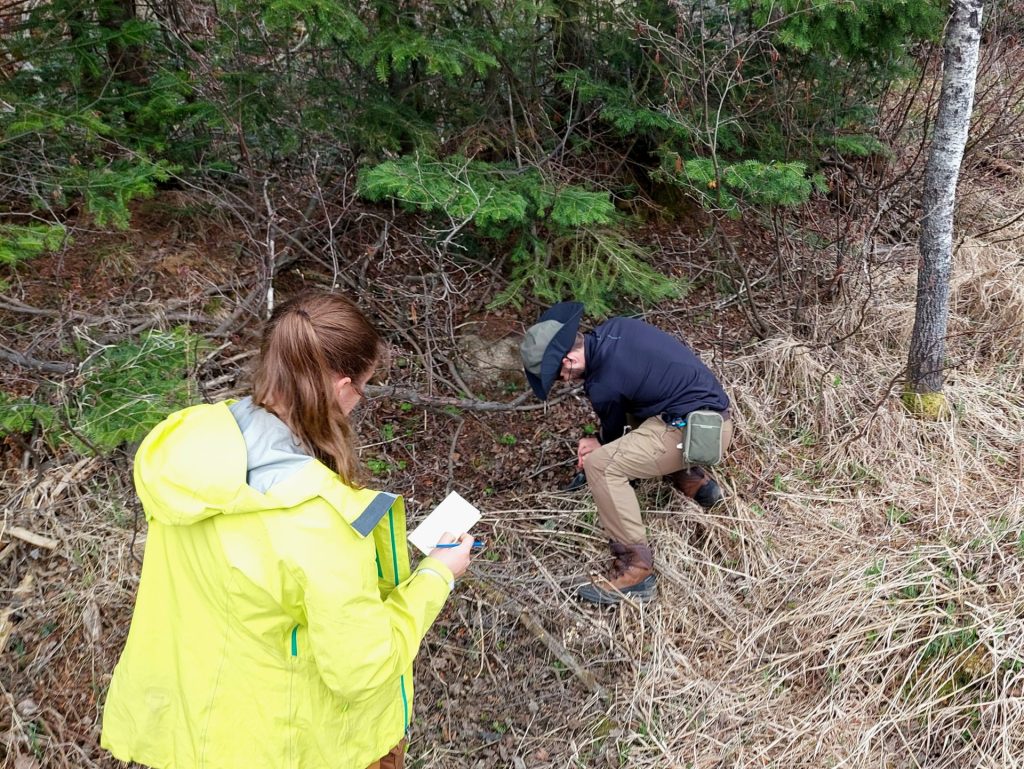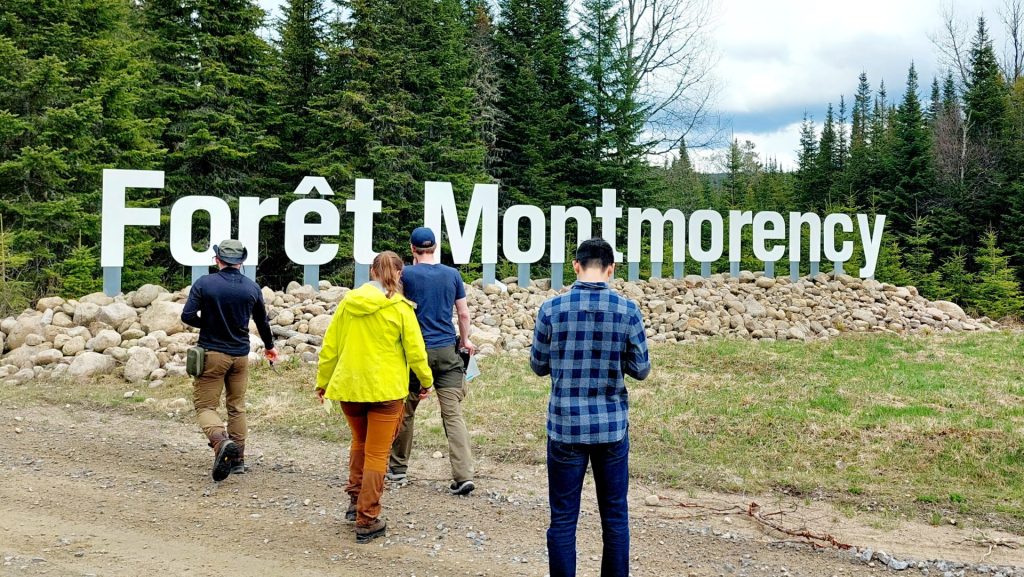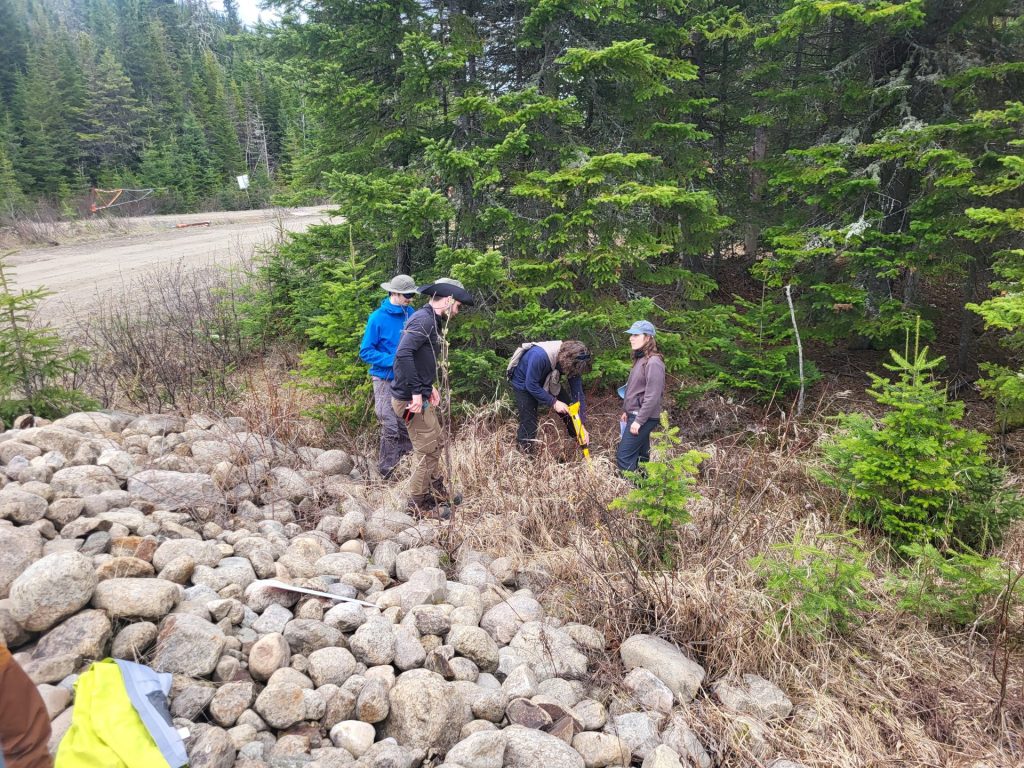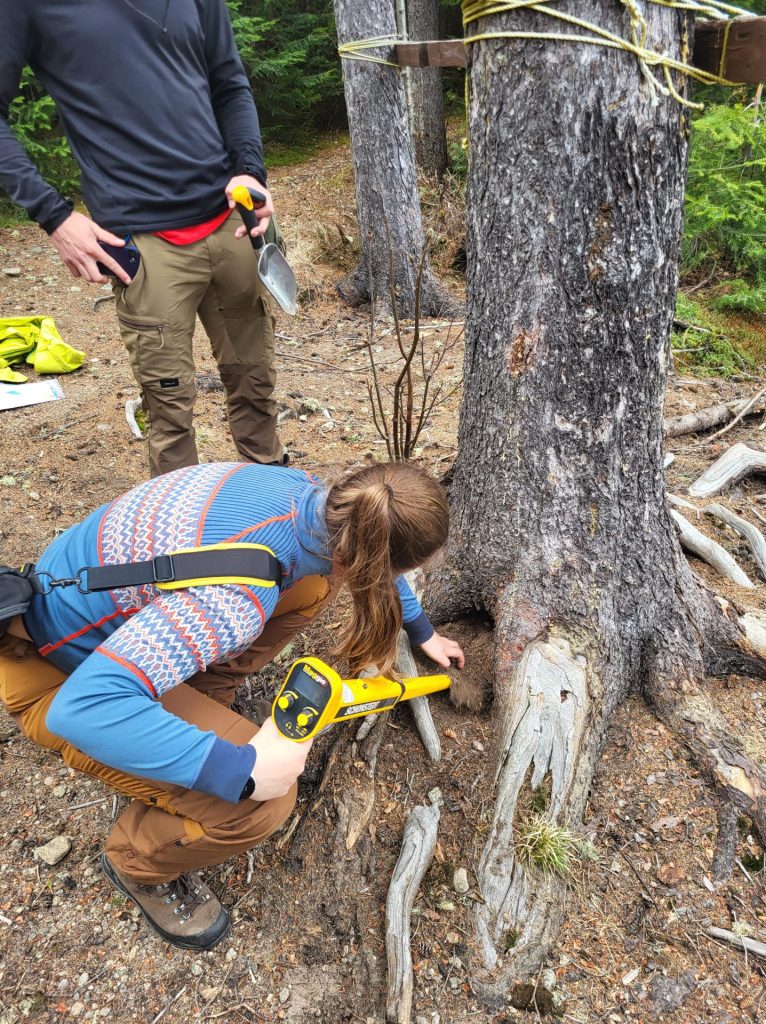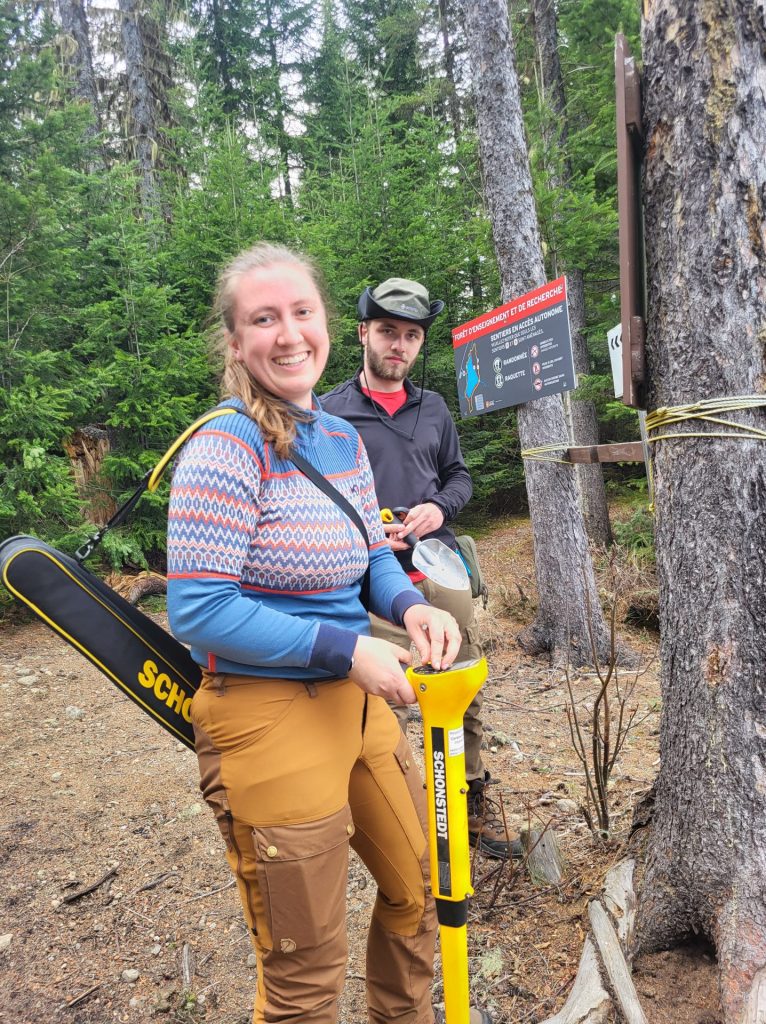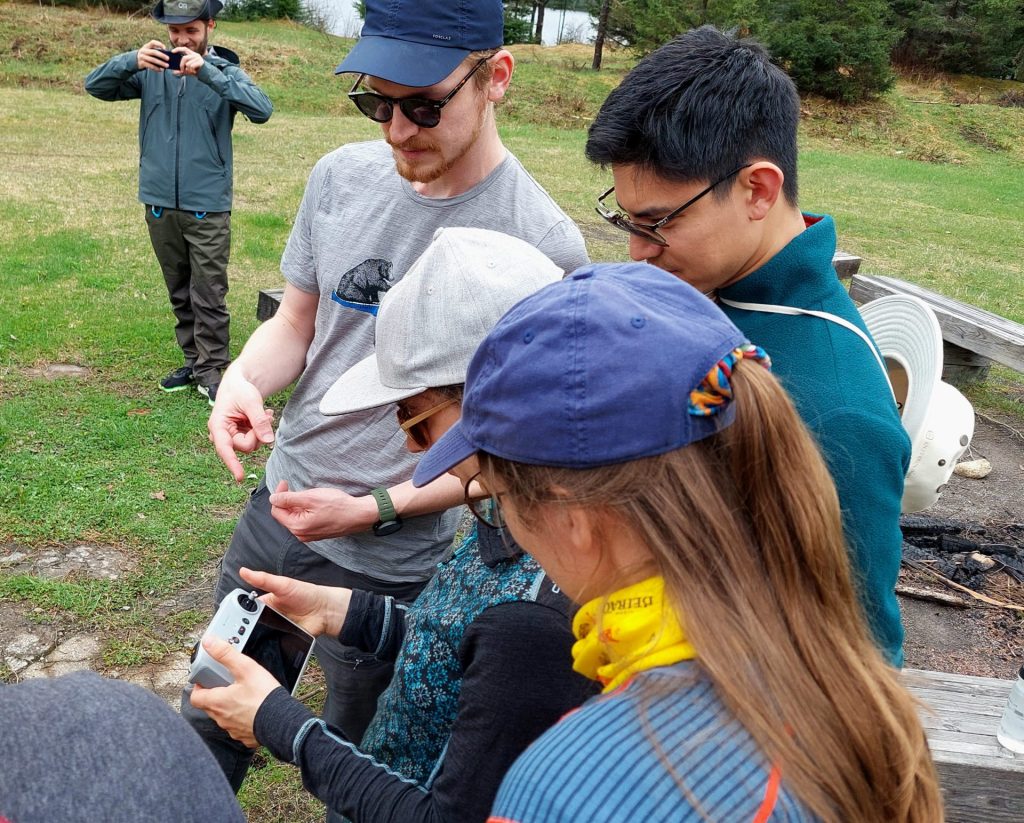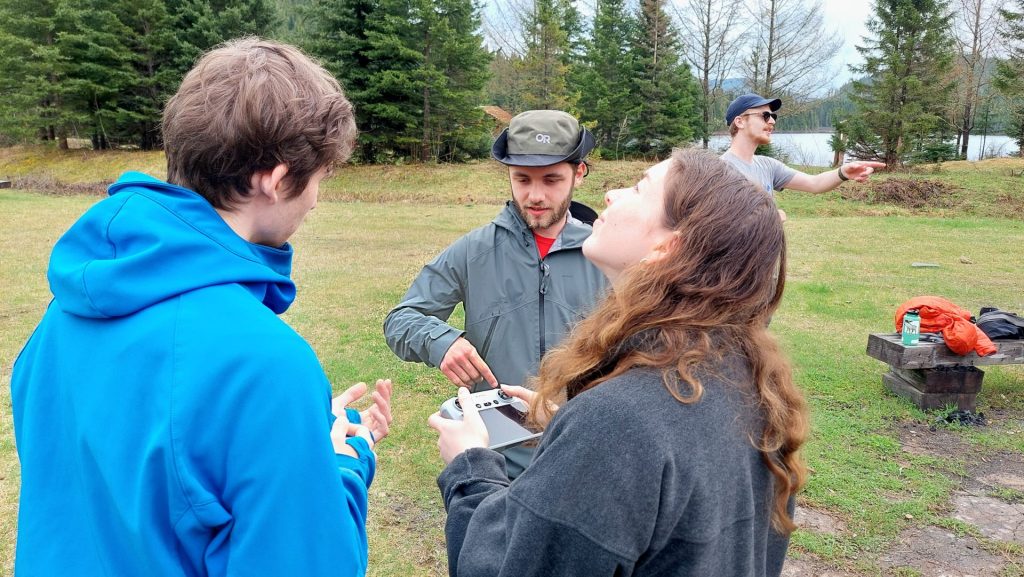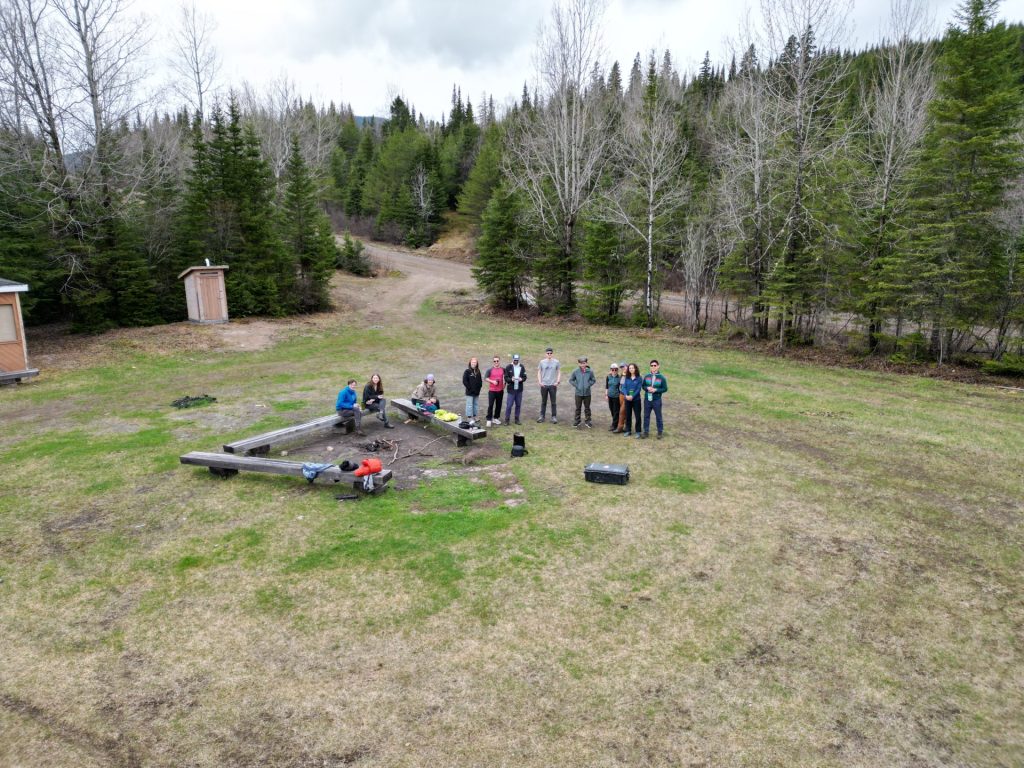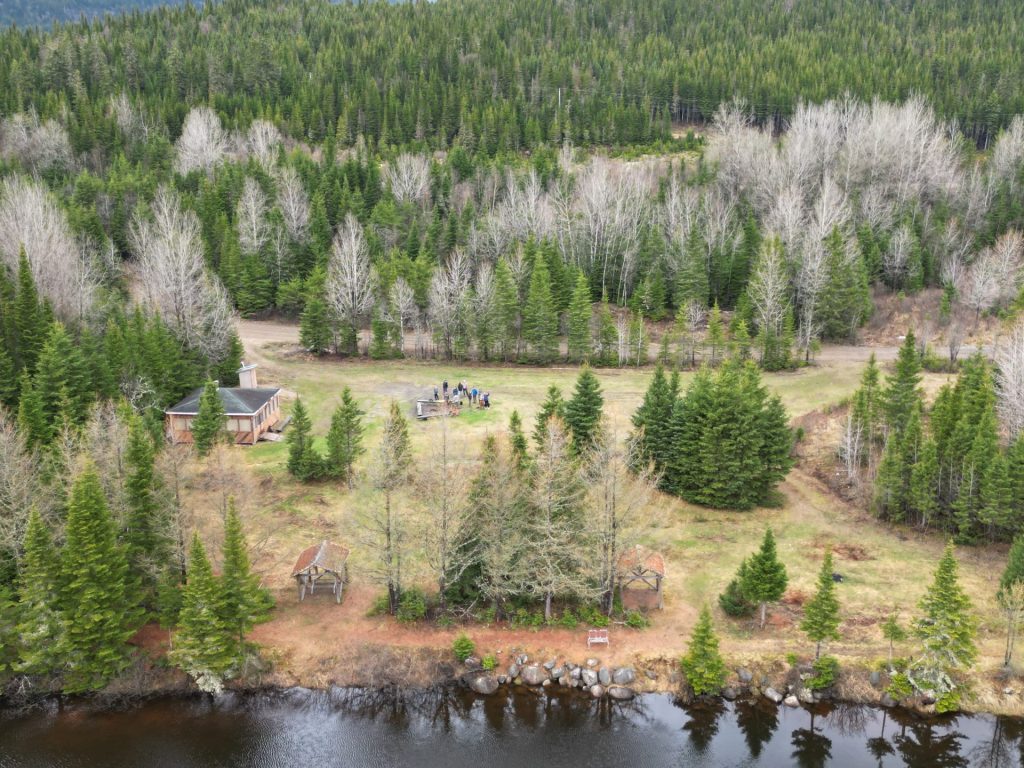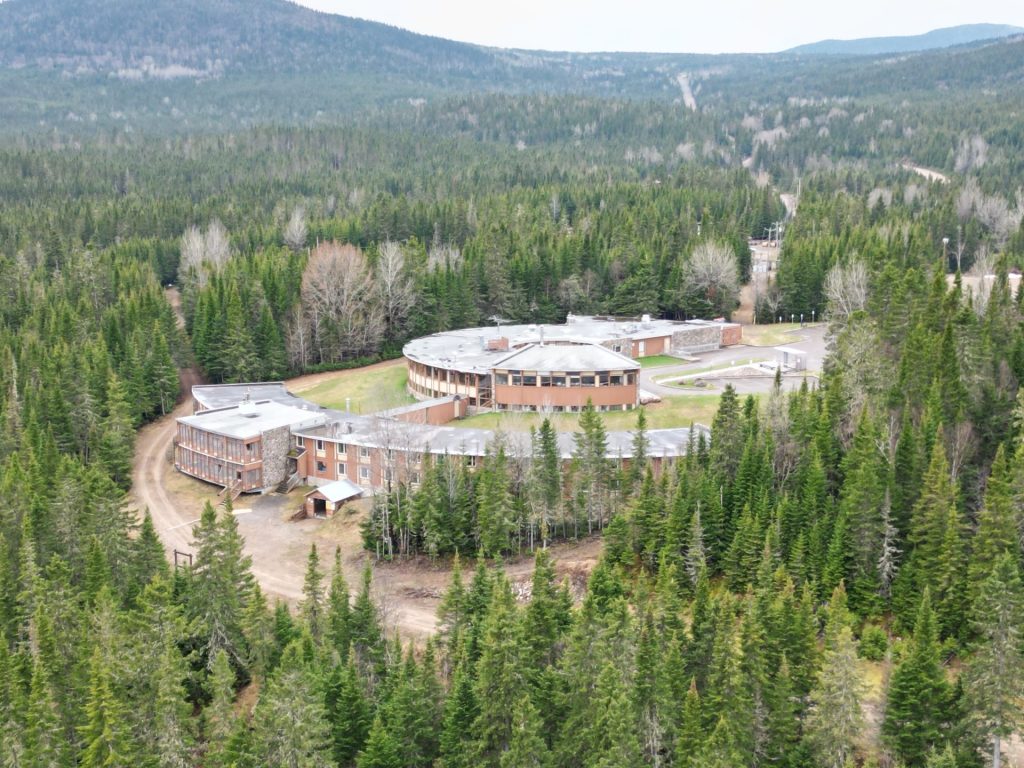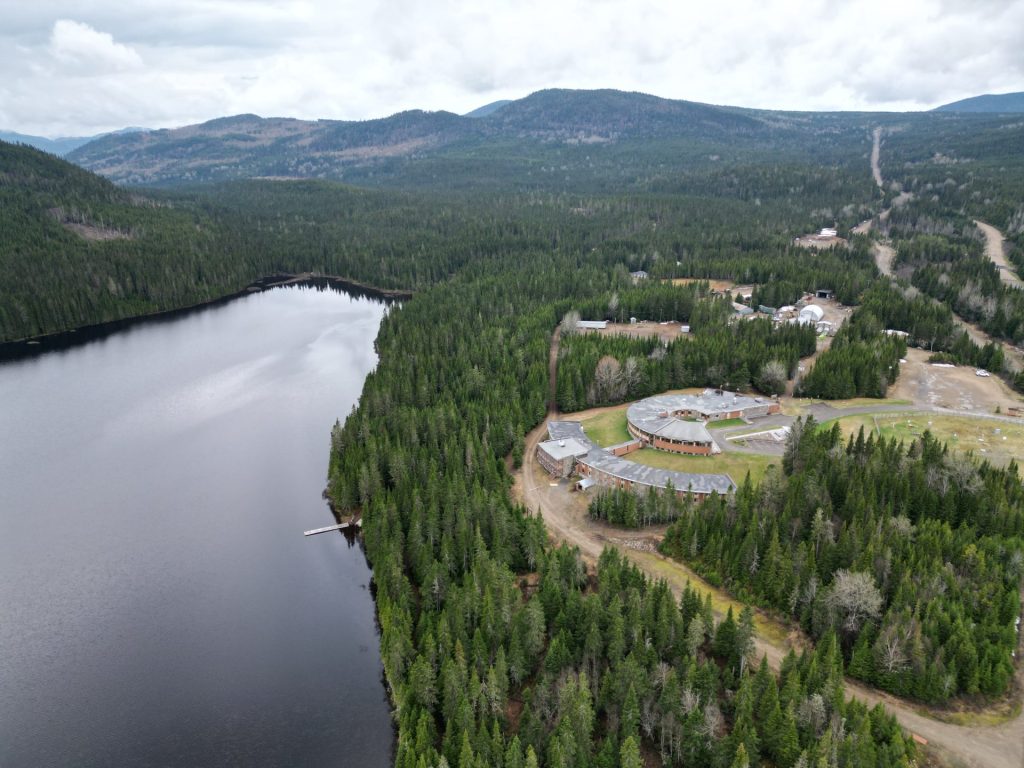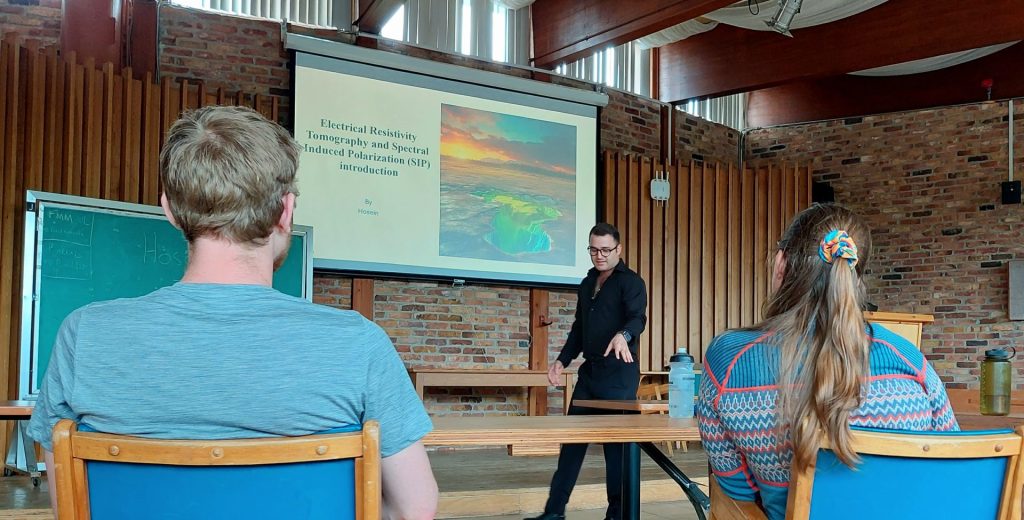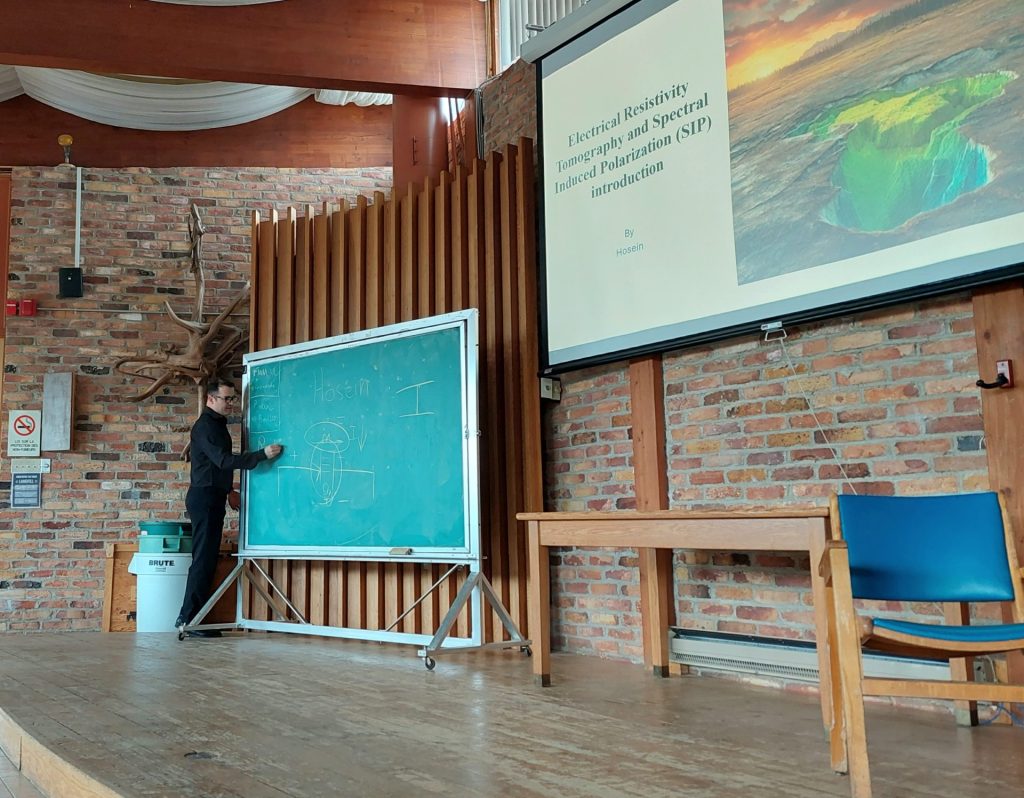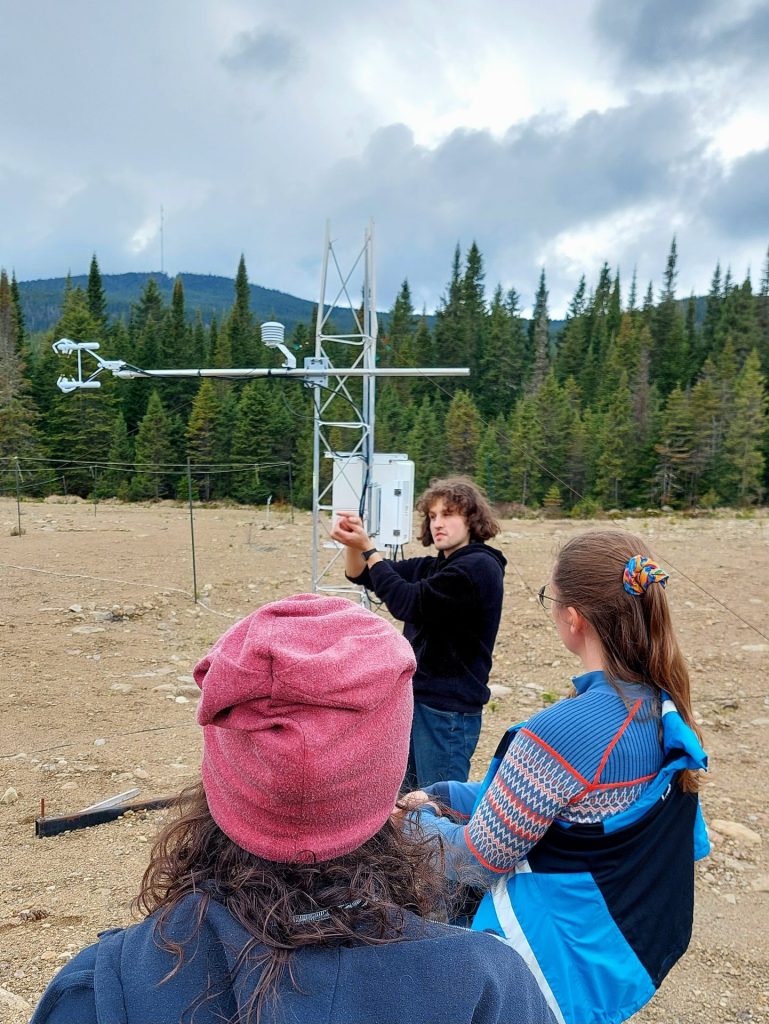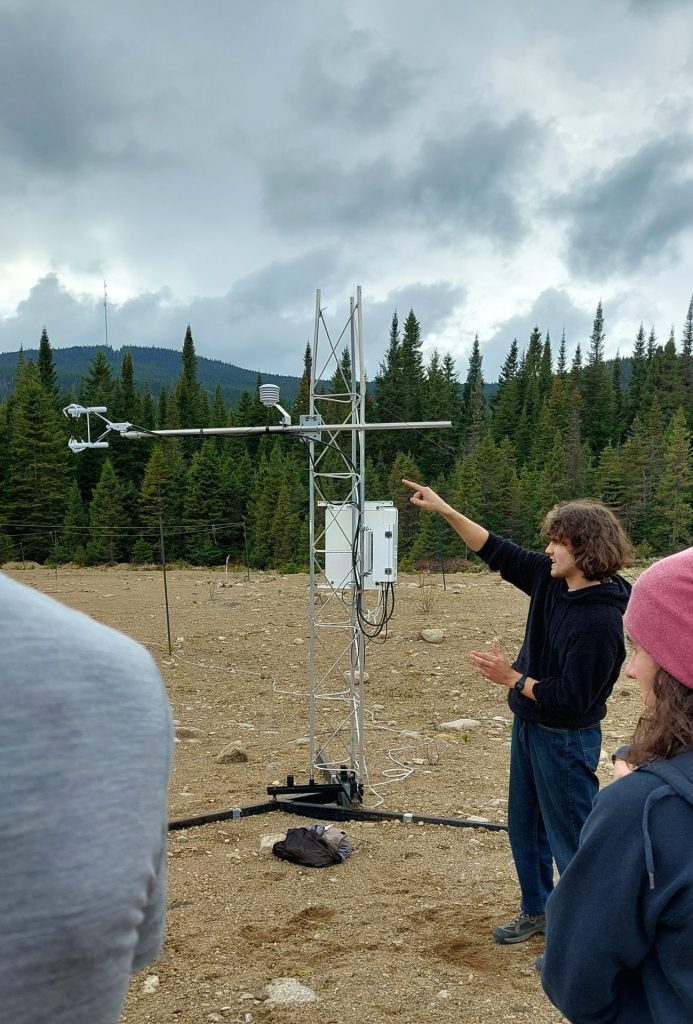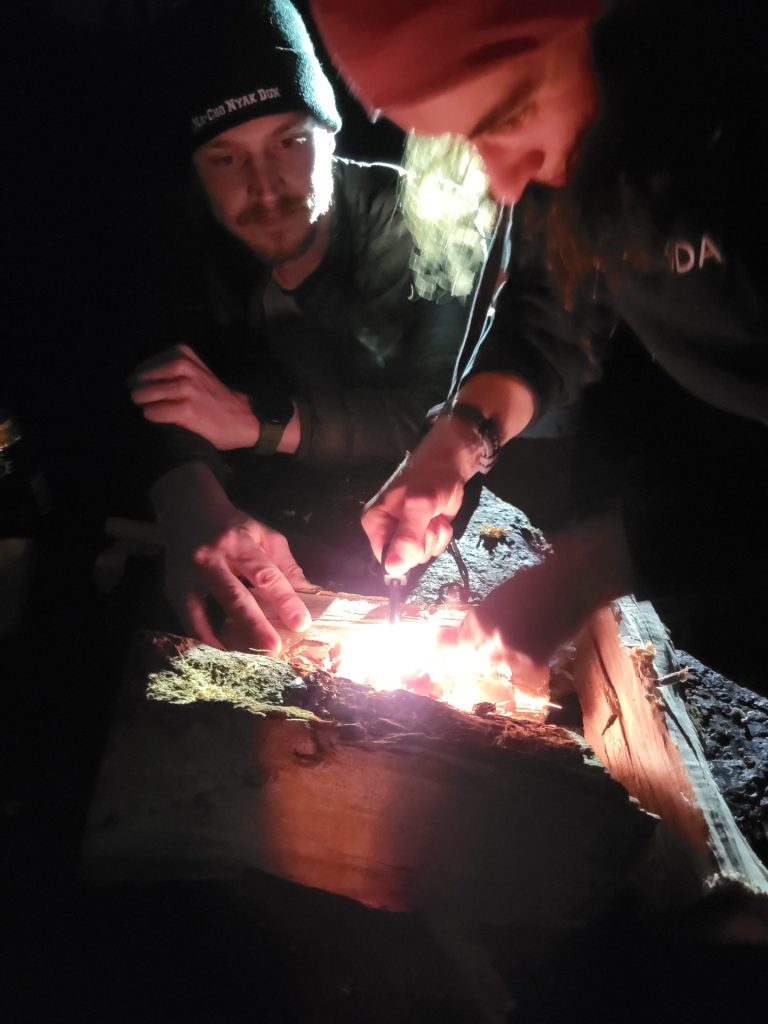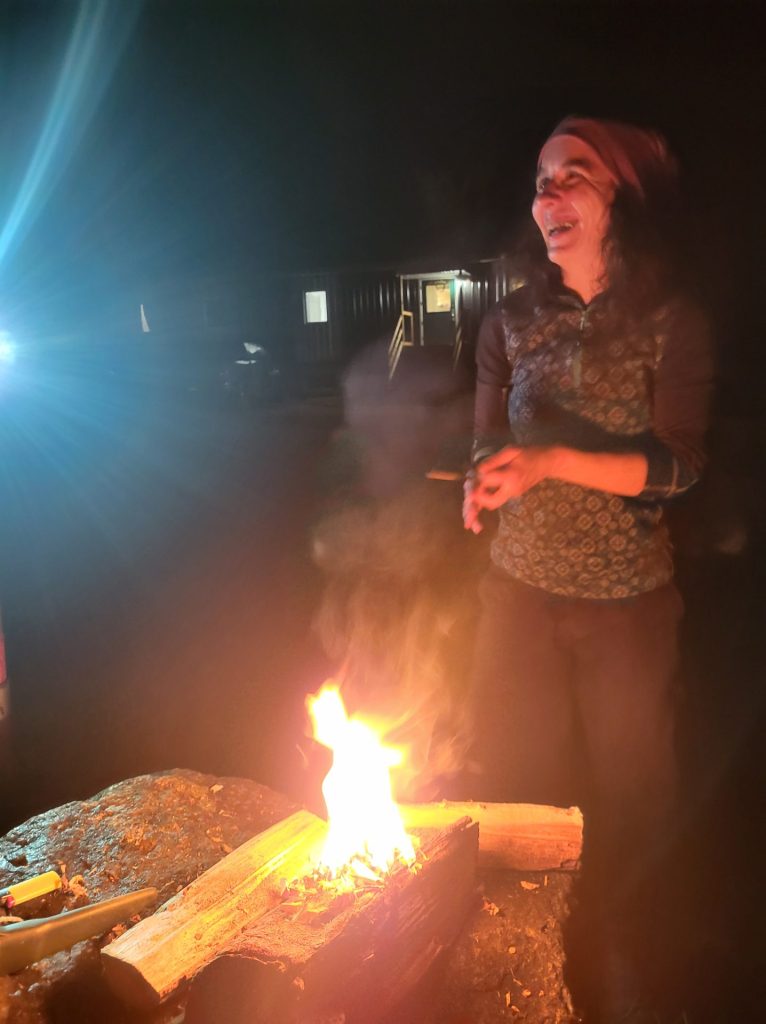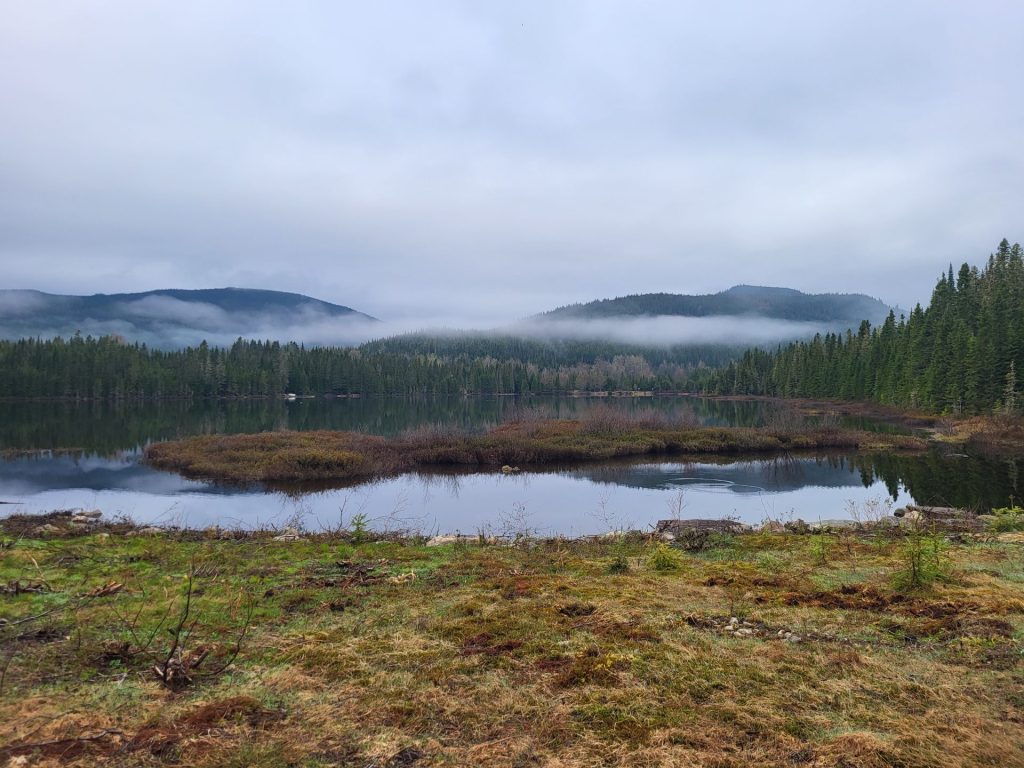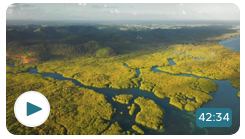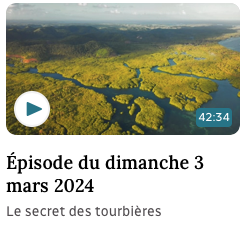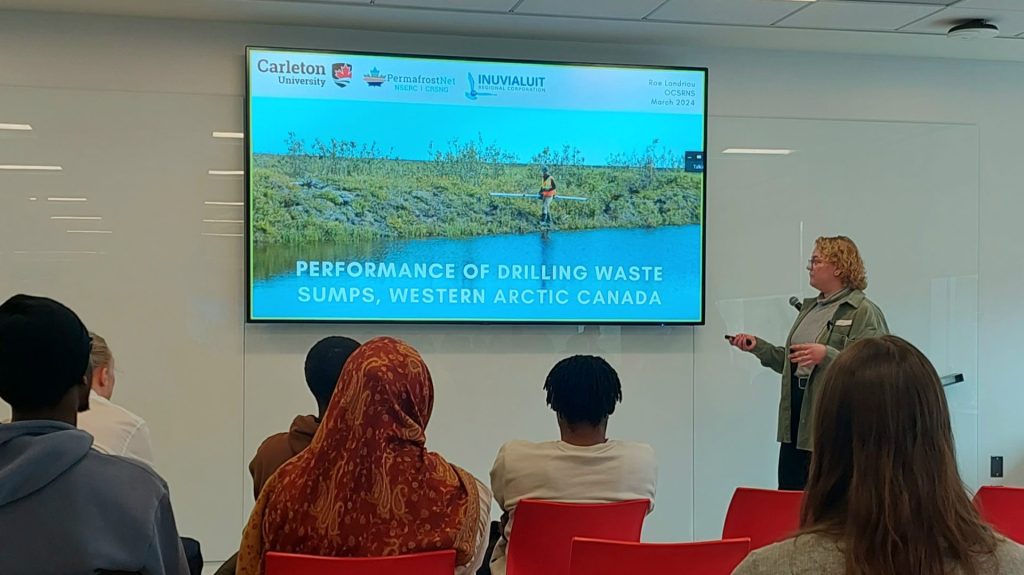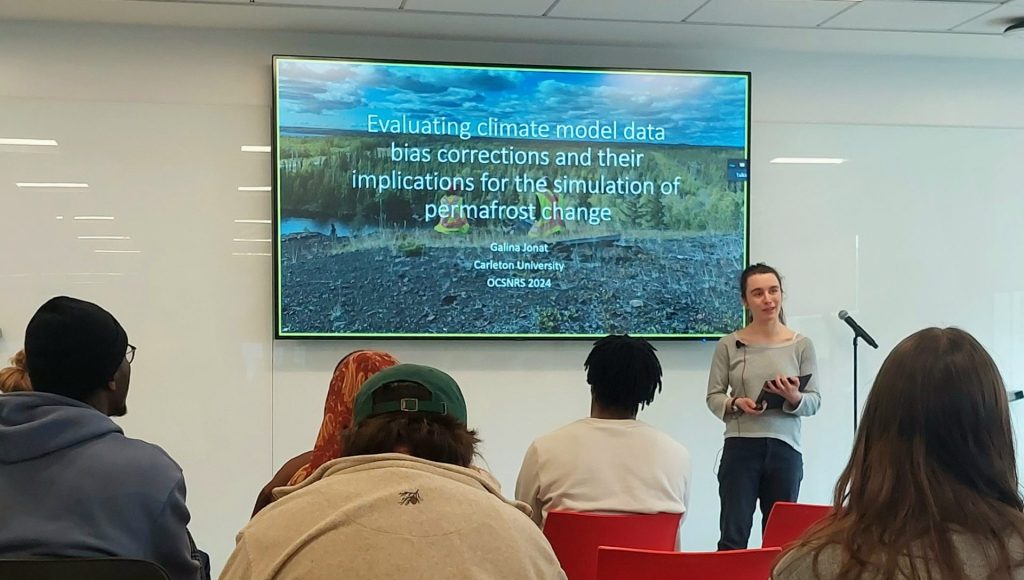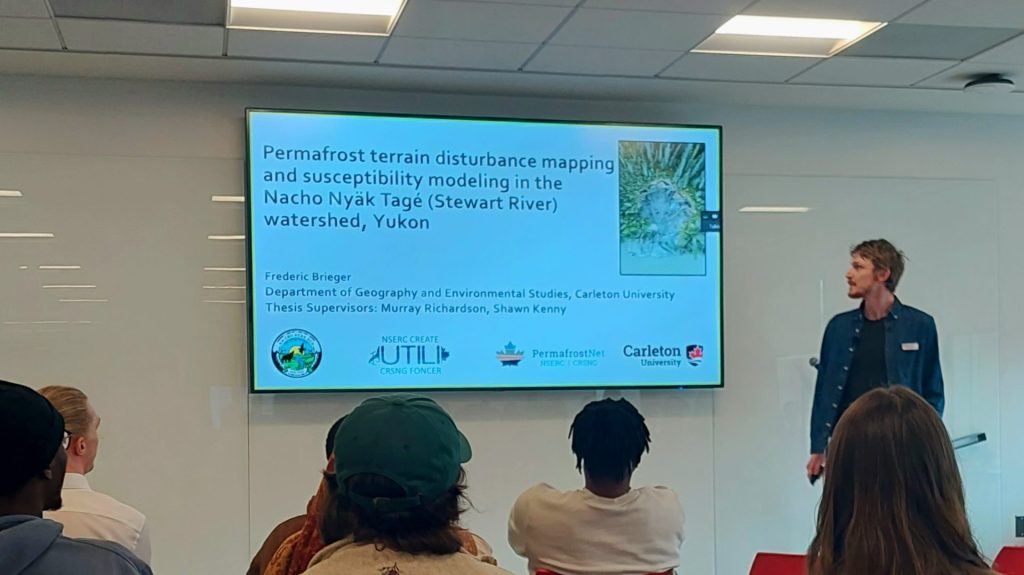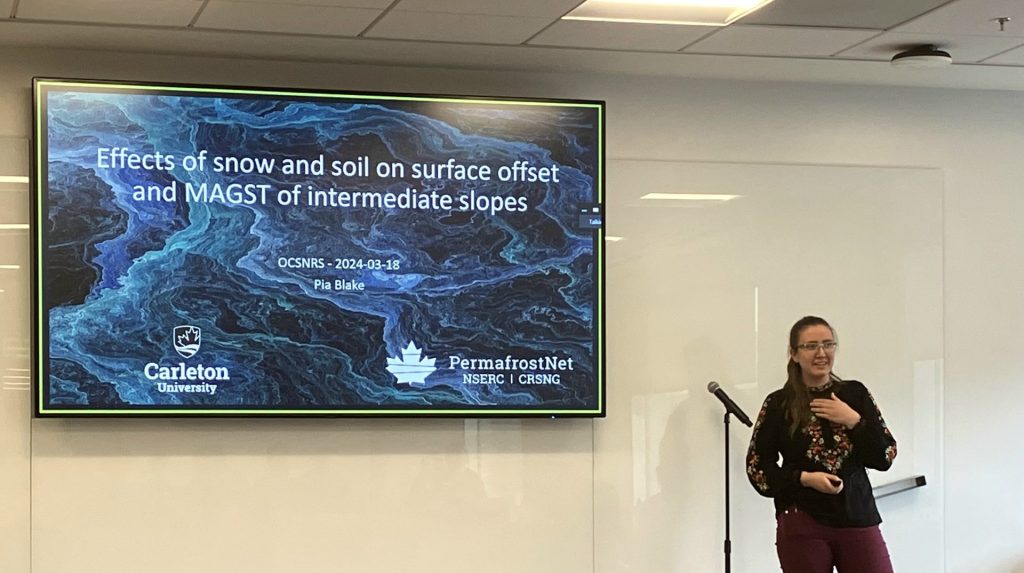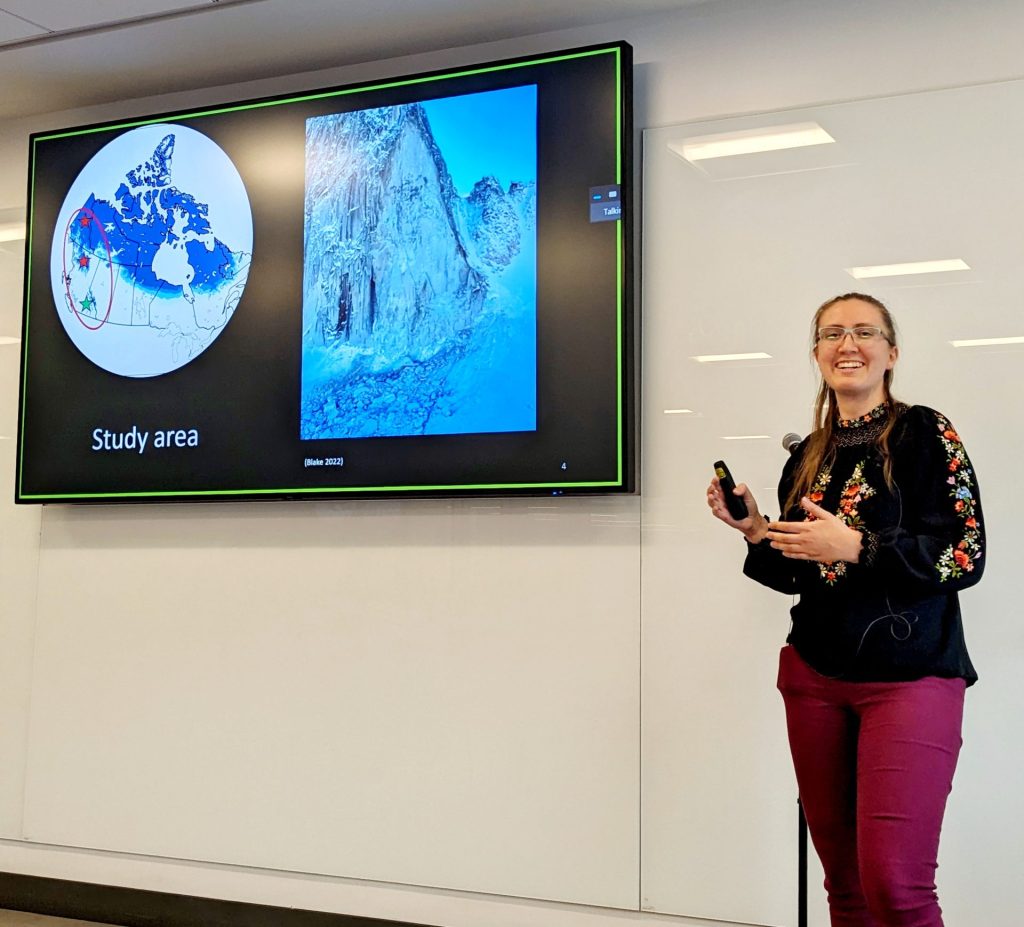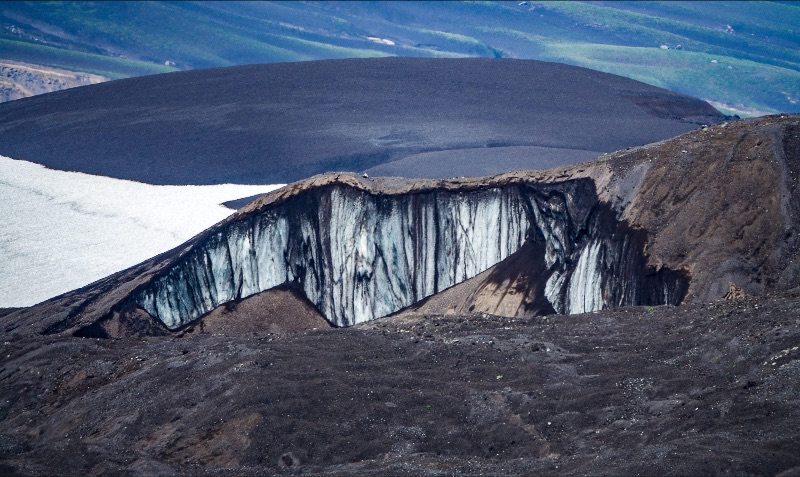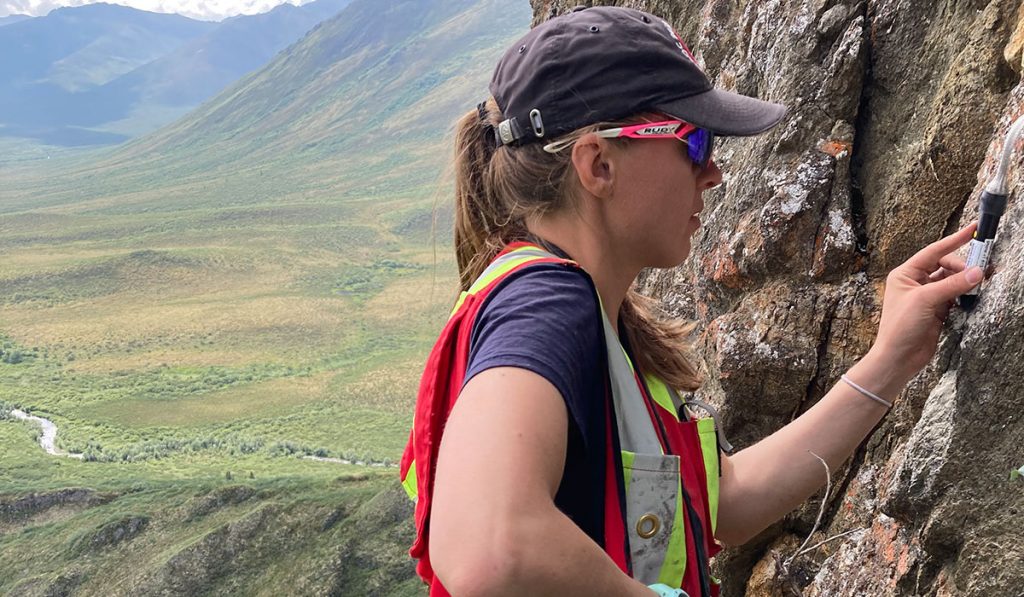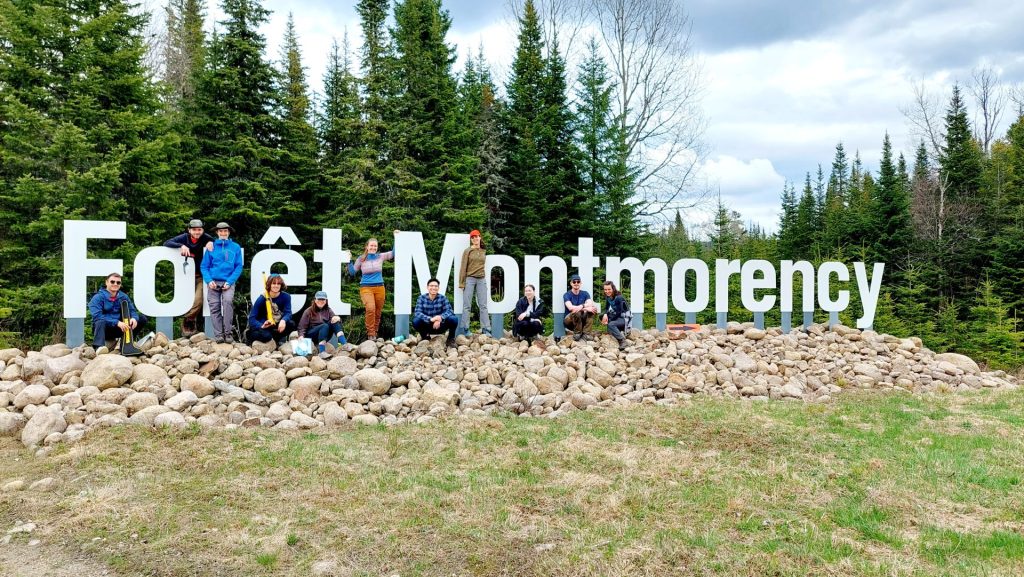
The network recently hosted a fieldwork training event at the Fort Montmorency research station of Université Laval.
The first day was packed with exciting and valuable sessions, from navigation training by Pia Blake to hands-on installation and location of ground temperature sensors by Galina Jonat and Olivia Meier-Legault, followed by discussions about field safety and situations led by Tristan MacLean.
The navigation session started off with everyone creating 3D models of their topographic maps, followed by outdoor location of waypoints, on and off the trails, using maps, compass and GPS.
In the afternoon, after an introduction to temperature sensors and their use in permafrost terrain by Galina and Olivia, the trainees were split into two groups, to test out their abilities at finding buried sensors based on location information and the use of a metal detector to find associated nails.
Day two was even more action packed, featuring drone flying, lectures on detecting ground ice and a competitive shelter building session followed by fire making practice with the ferro rods and some good old marshmallow toasting.
The morning featured a session on demystifying remotely piloted aircraft for field research with Frederic Brieger. Thankfully the rain held off and we were able to get out and get the drones up in the air.
The afternoon started off with a presentation on ERT and Spectral Induced Polarization by Hosein Fereydooni, before we headed out to see the flux tower and learn about eddy co-variance with Bruno Lecavalier. The group then took part in a competitive but very friendly time-limited challenge to construct a shelter in the wild with limited resources. The session was led, and each teams efforts carefully assessed by Frederic and Galina.
The day was completed with a tricky but satisfying fire-making session using a variety of survival tools and natural kindling.

